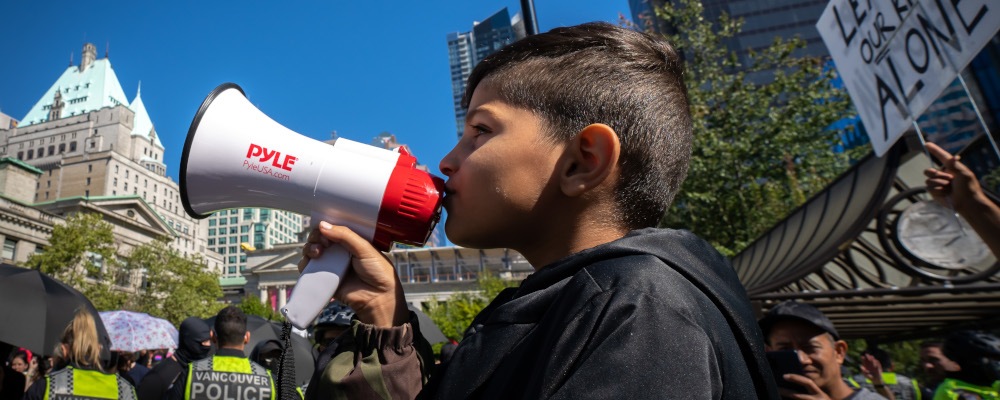Your employer has as much right to your opinion as you have to his Bobby Hull rookie card. That doesn’t stop Generation Z from disclaiming—on social media, blog posts, and in journal articles—that “opinions expressed are solely my own and not those of my employer.” Herein lies the timorous caveat.
Upon delving into Google Scholar, a repository of peer-reviewed articles, I unearthed roughly 67,000 papers adorned with such disclaimers—a trend that gained fervor after 2009.
For ideas to flourish, we need to speak clearly on matters of ethics, politics, and morality. The ubiquity of disclaimers has me worried about the state of our freedom of speech, our grammar, and about human authenticity, too. Imagine Plato disclaiming in the presence of his teacher, Socrates: “I sense a contrast arising between your approach and that of the Sophists, who win arguments through logical fallacies for personal gain—and here I speak solely for myself, not for the Socratic circle, and not for Greece!”

Your opinions are always your own. We live in a world where our professional and personal lives can comingle. It’s always been thus. If you write something that leaves your clients or students wilting in fear—especially if your words cause grievous assault to an identifiable minority group—your employer has the right to reprimand you and maybe even sack you. Again, nothing new here.
What’s new is the expansionist march of meaningless disclaimers. Some modern disclaimers alert readers that all views expressed, no matter how repugnant or anodyne, do not represent the views of “present or past employers.” Meaningless, since the disclaimer can serve to disclaim—but not to disown. You own what you say, online and off. If you say something charming or witty or wise, yasher koach! If you rejoice in a heart emoji or a repost, you earned it. If you hurt someone, you must own your apology, too.
While it’s sound advice for employees to exercise discretion and sensitivity when voicing controversial opinions aloud, the prevalence of these disclaimers online contributes to a chill on speech. The fear of professional repercussions or misinterpretation by employers or colleagues may lead people to temper authentic expression, compromising the principles of open discourse and intellectual diversity.
Authenticity is what employers and employees yearn for in each other; faux disclaimers are just that.
The language used in these disclaimers can be muddled with ambiguity. The phrase, “opinions expressed are solely my own,” falsely implies a clear demarcation between personal and professional viewpoints. It’s illogical in its construction, wrongly suggesting that others can lay claim to an individual’s thoughts or arguments. The word, “solely,” is redundant. Nor can we ever know if the opinions expressed have been proclaimed by others, with or without caveat; the disclaimer implies that you alone say this.
A 2014 U.S. tribunal decision (Kroger Company vs. Anita Granger) critiqued a firm’s policy requiring employees to always include a disclaimer of this nature. David I. Goldman, the administrative law judge in the case, conceded that companies have a legitimate interest in their employees not appearing to speak on their behalf “unless an employee is actively seeking to give the appearance of speaking on behalf of an employer.” In other words, the default position online should be as it is in physical interactions: if your neighbour, a schoolteacher, grumbles to you about the authoritarian remit of the teachers’ union to inject politics into the middle school curriculum, she’s expressing her view, not that of all educators.
To be sure, some people—politicians, union bosses, CEOs—are held to a higher standard when speaking publicly, since their jobs bestow on them stewardship toward voters, members, or shareholders. It’s their job, 24/7, and they’re generously compensated for being “always on.” And no disclaimer can or should absolve them from defaming anyone. If you work in the civil service or a job whose policies prohibit advocacy for a political party online, then your disclaimer won’t save you from transgression.
What if we cast away the disclaimer, this timorous caveat? Discouraging such disclaimers might make us cherish free speech more, and revive friendlier and more robust exchange in the public square.
Cardinal Richelieu, Chief Minister to King Louis XIII of France, is said to have cautioned: “If you give me six lines written by the hand of the most honest of men, I will find something in them which will hang him.”
Your enemies will try to hang you no matter what you disclaim or how vigorously you disclaim it. And if you keep mum on matters of morality about which you care deeply, then the loudest voices win. Free speech and the marketplace of ideas wither under a booming din of disclaimers.
Recommended for You

Adam Zivo: No Dr. Bonnie Henry, drug prohibition is not ‘white supremacy’

DeepDive: Two-parent families: why they’re so important—and why there’s cause for concern in Canada

Patrick Luciani: Does liberalism make us better people?

Alicia Planincic: Want to regain support for immigration? Prioritize economic immigrants once again









